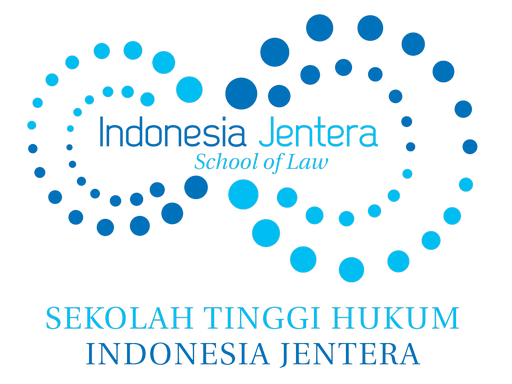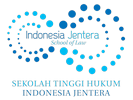
The debate over Papua flared up again in Indonesia after anti-racism protests in the US triggered a social media campaign highlighting the plight of Papuans. Like black people in America, they have long suffered from structural racism.
In a rare event, racism in Papua was brought into the public conversation. With the powerful hashtag #PapuanLivesMatter, Indonesians — Papuans and non-Papuans — spoke about the various abuses suffered by Papuans, including the fate of dozens of Papuan prisoners of conscience prosecuted for protesting against the same thing that took George Floyd’s life: racism.
This has happened before but this time there were at least two major shifts in the conversation about Papua. First, it caught the attention of the wider community beyond human rights activists, academics and government officials. Second, its focus shifted somewhat from the issue of separatism to the question of racism and its implications.
It is crucial that the government understands what we talk about when we talk about Papua. It is injustice, racism, persecution and political violence that preoccupies the minds and work of activists – not simply separatism.
Unfortunately, the government has consistently failed to acknowledge this basic fact. In the past few weeks, it has peddled the old misguided narrative about Papua that attempts to shut down any legitimate criticism of how Jakarta unfairly treats native Papuans by framing that criticism as an effort to compromise Indonesia’s territorial integrity.
At least two op-ed pieces by government officials and a report by Gadjah Mada University (UGM) were published over the last month to challenge the increasingly popular Papuan Lives Matter discussion.
In an op-ed in The Jakarta Post on 13 July, acting Foreign Ministry spokesman Teuku Faizasyah made a case for “decoupling” the Black Lives Matter protests from the call for Papuan independence. He argued that a “fair comparison cannot be made” between the situation in the US and Papua, saying that “BLM stems from an expansive history of discrimination and structured racism, the main foundation of Indonesia is equality.”
While it is true that the US and Papuan experiences of racism are different, this is a poor argument for backing his claim that there is no racism against Papuans in Indonesia. Various media reports, including those published in the Post, have depicted how Papuans outside Papua experience everyday racism.
The 2019 incident in Surabaya, East Java, last year, where authorities were recorded hurling racist insults at Papuan students, and the subsequent arrests of dozens of Papuans for taking part in rallies to protest this racist treatment, are clear examples of how institutional racism against Papuans has pervaded law enforcement bodies.
The US and Indonesian constitutions may herald the equality of all people, but that is an ideal that the governments of the two nations often cannot live up to.
Faizasyah further argues that structural racism could not exist in Papua because “the special autonomy law gives locals the privilege to administer their provinces” and that “a structured effort is being made to promote development centered around Indonesians of Papuan origin.”
But a study conducted by researchers from the Indonesian Institute of Science (LIPI) came to the opposite conclusion: that the marginalisation of and discrimination against indigenous Papuans is one of the four major causes of conflict in the region, along with development failures, disputes over the history of Papuan integration, and human rights violations against native Papuans.
The study, The Papua Road Map, highlights how Papuan cultural expressions are often regarded as a symbolic form of resistance to Indonesian rule. The arrest of West Papuan musician Arnold Ap by the Indonesian Army’s Special Forces (Kopassus) in 1983 for his social criticism and protest songs, followed by his murder a year later, have haunted Papuans for decades.
It does not help that even after Papua was granted Special Autonomy, Jakarta has relied on a 2007 government regulation that proscribes certain cultural symbols such as the Morning Star flag, which the LIPI researchers suggest serves as a “sharp reminder of the central government’s suspicions of Papuan cultural expression.”
Barely a week after Faizasyah’s piece was published, Jaleswari Pramodhawardani, the deputy head of politics, law, defence, security and human rights affairs at the Office of Presidential Staff, published an op-ed in Kompas again questioning the merit of associating the BLM protests with the Papuan struggle.
Jaleswari repeated Faizasyah’s claim that there is no systemic racism in Papua, refuting the claims that the government has engaged in repressive acts against Papuans and has failed to bring prosperity to the region. She said that her claims were backed by data, but her argument was little more than ‘whataboutery’, and failed to address the core issues.
Jaleswari, for example, cited a UGM study claiming that political violence in Papua is mostly carried out by armed criminal groups linked to the Free Papua Movement (OPM). The study, conducted by UGM’s Papua Task Force and apparently aimed at countering the 2018 Amnesty International Indonesia report on unlawful killing in Papua, relied heavily on media reports. If anything, the study actually acknowledges the violence committed by security forces against Papuans.
Regardless of the accuracy of the report, pointing to the violence committed by armed rebels should not be used to gloss over the violence, including unlawful killings, committed by security forces.
The Amnesty report detailed at least 69 incidents of unlawful killing involving both the Indonesian Military (TNI) and police in Papua between January 2010 and February 2018. The killings claimed 95 lives, 85 of whom were native Papuans. One of the most important findings of the report was that most cases (41 of them) occurred in the context of events that were unrelated to calls for independence or a referendum for Papua.
The trend of unlawful killings continues. This year alone, Amnesty has recorded at least 11 cases of suspected unlawful killings by security forces. This shows a lack of accountability on the part of the government in relation to the many incidents of political violence in Papua. This lack of accountability for state violence is cited by the landmark LIPI study as one of the major issues hampering conflict resolution in Papua.
It is baffling that Jaleswari would ignore the LIPI study, which is based on three years of research, and refer instead to a politically biased study with questionable methodology.
What is more confusing is Jaleswari’s argument that the election of Indonesia to the UN Human Rights Council is proof that the nation is not perceived by the international community as violating the rights of Papuans. This statement could not be farther from reality.
The list of issues raised by the Human Rights Council for Indonesia’s third Universal Periodic Review in 2017 and the recent written communication by the UN Committee on Civil and Political Rights show that Indonesia is still under the spotlight for rights abuses in Papua and West Papua, from unlawful killings to the treatment of internally displaced people, and the lack of freedom of expression in the two provinces.
It is worth noting that according to Statistics Indonesia, the nation’s democracy index improved last year, increasing from 72.39 points to 74.92 points. However, of all provinces in the country, West Papua is recorded as having has the worst democracy index, with just 57.62 points.
There is no question that transparency is key to solving the Papua problem. It is therefore reprehensible that the government stubbornly refuses to address this issue. It continues to harass those who seek to shed light on injustice in Papua, even after a court declared unlawful its decision to impose an internet blackout during the 2019 anti-racism riots.
Human rights lawyer Veronica Koman is an example. She has been forced to live in exile in Australia, unable to return to Indonesia after being charged with spreading fake news for reporting on Papua from her social media account. The government is now even attempting to force her to return Rp 773.8 million (US$52,760) in scholarship funds that she received to study human rights law at the Australian National University (ANU), a policy that Veronica described as “financial punishment”.
There is no overlooking the fact that there are elements within Papua that are calling for either a referendum or independence. The question of Papua can easily be linked to the issue of separatism.
But as data provided by credible institutions show, racial discrimination and human rights abuses are a reality in Papua, regardless of separatism, and these abuses must be acknowledged and addressed. The government can no longer pretend that all is well in Papua and must begin confronting the uncomfortable truths about the region.
================================================================================
Sumber: https://indonesiaatmelbourne.unimelb.edu.au/what-we-talk-about-when-we-talk-about-papua/

